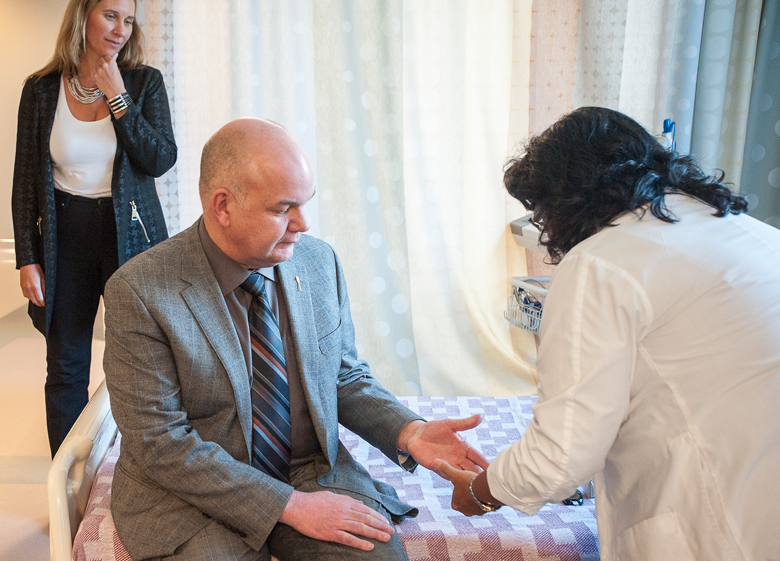
Diabetes research at the University of Alberta received an injection of funding today, thanks to a new collaboration with Johnson & Johnson that will allow researchers across Campus Alberta to come together to fight Type I and Type II diabetes.
The competitive fund, announced by Dr. Douglas Miller, dean of the Faculty of Medicine & Dentistry is the product of leveraging funds from Janssen, part of the Janssen Pharmaceutical Companies of international conglomerate Johnson & Johnson, and matched funds from the Government of Alberta and The Alberta Diabetes Foundation. This newly created $600,000 fund, says Miller, will allow scientists to focus on novel discovery-based research with a high potential for commercialization.
"I stand here as a testament that diabetes research in Edmonton really does work," said Bob Teskey, member of the board of the Alberta Diabetes Foundation and patient number four of the Edmonton Protocol, the breakthrough islet cell transplantation treatment developed by UAlberta researchers.
Through the collaboration, the Alberta Diabetes Institute and technical experts from Johnson & Johnson Innovation Center in California will jointly identify several high-potential opportunities from medical researchers and award up to $50,000 for one year, including indirect costs from the research fund. All aspects of diabetes research are eligible to apply for funding. Proposals are expected to lead to further development of drugs, devices, cell therapies and processes that relate to the diagnosis, treatment and management of Type I or Type II diabetes.
"Alberta's decades-long commitment to diabetes research has brought groundbreaking discoveries and better quality of life for diabetes sufferers," said Fred Horne, minister of health. "Working collaboratively with our innovation system, Campus Alberta and across the public and private sectors, means we can move promising discoveries to the marketplace faster."
More than nine million Canadians currently live with either pre-diabetes or Type I or Type II diabetes, so this type of research is critical to patients like eight-year-old Bryan Kaliel. He is an "unstable" Type I diabetic who was diagnosed three years ago. He is extremely sensitive to insulin and his blood-sugar levels fluctuate wildly. A cure for diabetes, says his mother Billie-Jo, would be life changing.
"When your child is born, you write their story in the first few minutes, and diabetes is never in the pictures," she said. "A cure for diabetes would mean being able to rewrite Bryan's story again, without insulin, or needles.
"For now, every day is complicated."
"This private-public partnership fund will accelerate the development and validation of health-care technologies within Alberta, which is known for life-changing research in the causes, prevention, treatment and management of diabetes," says Miller. "Leveraging the knowledge across Campus Alberta through matching funds from Janssen, the Alberta Diabetes Foundation and the Government of Alberta is good business for great science."